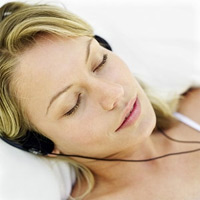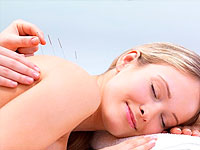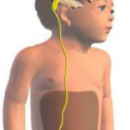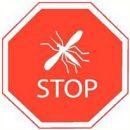Do you know that one of the best medicines is music? Of course, not everyone, but, first of all, the one who awakens in a person a pleasant association makes it relax and thinking about good.
Content
 According to the British magazine «Advanced medical care»one, The patient, listening to music, is 21% less suffering from chronic pain in the diseases of the spine and joints and is easier to transfer depression to 25%.
According to the British magazine «Advanced medical care»one, The patient, listening to music, is 21% less suffering from chronic pain in the diseases of the spine and joints and is easier to transfer depression to 25%.
Increasingly, music includes during childbirth as a replacement of painkillers. Music enhances the effect of anesthesia during surgical operations and helps to alleviate the postoperative condition of the patient2.
The mechanism of an anesthetic effect of music is still not fully understood. There are several theories that are currently being checked by researchers.
- Music distracts patient attention from pain.
- Music gives the patient a sense of control over what is happening.
- Music causes an increased production of endorphins, which are known for their painkillers effect.
- Music relaxes patient, slowing down the production of adrenaline.
Reduced pressure
In people who suffer from hypertension, which every morning and in the evening of 15 minutes listen to relaxing classic, Celtic music or stew (traditional Indian music), pressure decreases. With regular listening to music, pressure is consistent at the normal level3.
Help work heart
Research results argue that music has a significant impact on the work of the heart. In this case, the decisive value remains for the pace, and not for the musical style. Italian and English researchers conducted an experiment, measuring their breath, heart rhythm and pressure of participants listening to music4. Under the energetic music, breathing and heartbeat subjects accelerated, under a calm – slowed down. During the two-minute pauses between musical passages, all the indicators came to normal. It turned out to be surprising that breathing, pressure and heart rhythm were changed regardless of whether the music was liked to be included.
Rehabilitation after stroke
Daily dose of beloved pop music, classics or jazz speeds up recovery after stroke. Finnish scientists came to this conclusion, watching patients who have suffered a stroke and as part of the mandatory treatment of listening to music. Compared to patients who do not receive musical therapy, a coherent speech and the ability to concentrate attention returned to music loversfive.
Treatment of migraine and chronic headaches
Music helps people suffering from chronic headaches6 and migraine7, reduce the intensity, frequency and duration of pain.
Stimulation of the immune system
Scientists explain that a pleasant music music creates a positive attitude that promotes the added secretion of hormones that help the body to resist diseaseseight. In addition, music helps to reduce the level of cortisol responsible for reducing the immune responsenine-10.
Summing up, we can with a great deal of confidence to advise you to make music part of your life. Wake up and fall asleep under your favorite songs, replenish your musical collection by the works of Beethoven, Tchaikovsky and Strauss, get to know Indian and Celtic melodies – And you will noted that it became easier to live.
one. Siedliecki SL, Good M. Effect of Music On Power, Pain, Depression and Disability. J Adv Nurs. 2006 Jun; 54 (5): 553-62.
2. Nilsson U, Unosson M, Rawal N. Stress Reduction and Analgesia in Patients Exposed to Calming Music Postoperative: A Randomized Controlled Trial. EUR J Anaesthesiol. 2005 Feb; 22 (2): 96-102. PubMed
3. Teng XF, Wong My, Zhang YT. The Effect of Music On Hypertensive Patients. CONF PROC IEEE ENG MED BIOL SOC. 2007; 2007: 4649-51 PubMed
4. Bernardi L, Porta C, Sleight P. Cardiovascular, Cerebrovascular, and Respiratory Changes Induced by Different Types of Music In Musicians and Non-Musicians: The Importance of Silence. Heart. 2006 APR; 92 (4): 445-52. PubMed
five. Sarkamo T, Tervaniemi M, Laitinen S, Forsblom A, Soinila S, Mikkonen M, Autti T, Silvennoinn Hm, Erkkila J, Laine M, Perettz I, Hietanen M. Free Full Text Music Listening Enhances Cognitive Recovery and Mood After Middle Cerebral Artery Stroke. Brain. 2008 MAR; 131 (PT 3): 866-76. PubMed
6. Risch M, Scherg H, Verres R. [Music Therapy for Chronic Headaches. Evaluation of Music Therapeutic Groups for Patients Suffic Hepaces. Schmerz. 2001 APR; 15 (2): 116-25. German. PubMed
7. Oelkers-AX R, Leins A, Parzer P, Hillecke T, Bolay HV, Fischer J, Bender S, Hermanns U, Resch F. Butterbur Root Extract And Music Therapy In The Prevention of Childhood Migraine: An Explorative Study. EUR J Pain. 2008 APR; 12 (3): 301-13. PubMed
eight. Kuhn D. The Effects of Active and Passive Participation in Musical Activity on the Immune System As Measured by Salivary Immunoglobulin A (Siga). J Music Ther. 2002 Spring; 39 (1): 30-9. PubMed
nine. Le Roux FH, Bouic PJ, Bester MM. The Effect of Bach's Magnificat on Emotions, Immune, And Endocrine Parameters During Physiotherapy Treatment Of Patients With Infectious Lung Conditions. J Music Ther. 2007 Summer; 44 (2): 156-68. PubMed
10. Kreutz G, Bongard S, Rohrmann S, Hodapp V, Grebe D. Effects of Choir Singing Or Listening On Secretory Immunoglobulin A, Cortisol, And Emotional State. J Behav Med. 2004 DEC; 27 (6): 623-35. PubMed









